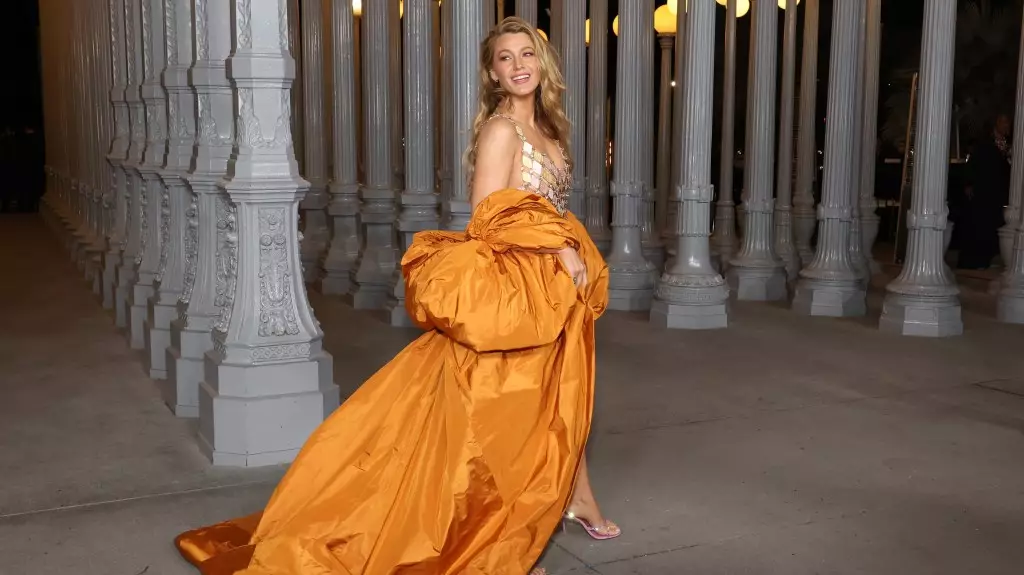The entertainment industry is no stranger to allegations of misconduct, yet the recent lawsuit filed by Blake Lively against her co-star and director Justin Baldoni has sharply raised concerns regarding workplace ethics and personal conduct within film sets. Lively’s allegations focus not only on purported sexual harassment but also on a retaliation campaign aimed at undermining her career. This situation highlights critical issues in Hollywood surrounding power dynamics, accountability, and the repercussions of speaking out against those in positions of authority.
In her lawsuit, Lively recounts instances that demonstrate a troubling atmosphere on set during the filming of “It Ends With Us,” an adaptation of Colleen Hoover’s bestselling novel which touches on sensitive subjects such as domestic violence. According to the legal documents, Baldoni’s behavior—including inappropriate comments and unconsented additions of intimate scenes—created a hostile working environment. As Lively attempted to address the troubling behavior, she faced what she describes as a systematic effort to diminish her credibility and public standing.
The impact of these allegations was not merely personal; the repercussions rippled into Lively’s professional life as well. One notable consequence was the cancellation of her role as the host for the premiere of “Saturday Night Live” Season 50. This cancellation was reportedly influenced by the negative narrative that emerged after she voiced her concerns about Baldoni’s conduct, leading to a fear that any public appearance would force her to confront uncomfortable discussions regarding these events.
The thrust of Lively’s lawsuit revolves around claims of retaliation orchestrated by Baldoni and his production company, Wayfarer Studios. The suit paints a picture of a concerted effort to undermine Lively through a “sophisticated press and digital plan.” Such a strategy allegedly materialized in response to her exercising what should be her legally protected right to confront workplace harassment. This speaks to a larger issue within the industry: the ability for powerful individuals to leverage their influence to silence those who dare to speak out against them, understandably creating an environment of fear and intimidation.
Moreover, Lively’s legal team positioned her struggle within the context of a broader fight for victims’ rights within the film industry. The assertion that Baldoni publicly downplayed his alleged harassment and promoted a negative narrative around Lively’s reputation raises pressing questions about how power imbalances impact the careers and lives of those affected by such misconduct.
The public and legal backlash against Baldoni has been substantial. His attorney has called Lively’s accusations “shameful” and completely unfounded, suggesting that her negative reputation stems from her own conduct rather than any misconduct from Baldoni. This defensive stance raises concerns about victim-blaming, which is unfortunately prevalent in narratives surrounding accusations of harassment.
In a surprising turn, Baldoni’s agency, WME, has parted ways with him shortly after the allegations surfaced, signaling a potential shift in how the industry responds to such serious claims. The fact that an agency would distance itself from a client under allegations of this nature may foreshadow a broader trend within Hollywood, where accountability might become more stringent.
Lively has garnered support from various individuals, including author Colleen Hoover, who publicly acknowledged Lively’s character, praising her for her honesty and kindness. This show of solidarity complicates Baldoni’s narrative that Lively is merely attempting to rectify her public image and illustrates the significant impact of allegations not only on the individuals involved but also on their colleagues and the public perception of those in the industry.
The allegations made by Blake Lively against Justin Baldoni highlight a critical moment for Hollywood that reflects ongoing discussions regarding workplace culture and accountability. As the case unfolds, it will be crucial for the industry to confront these challenges head-on and foster an environment where individuals feel safe speaking out against harassment and misconduct. This ongoing struggle for justice and integrity in entertainment carries significant implications not only for talent but also for audiences, reinforcing the necessity for systemic change in how such allegations are treated within the broader cultural narrative.


Leave a Reply